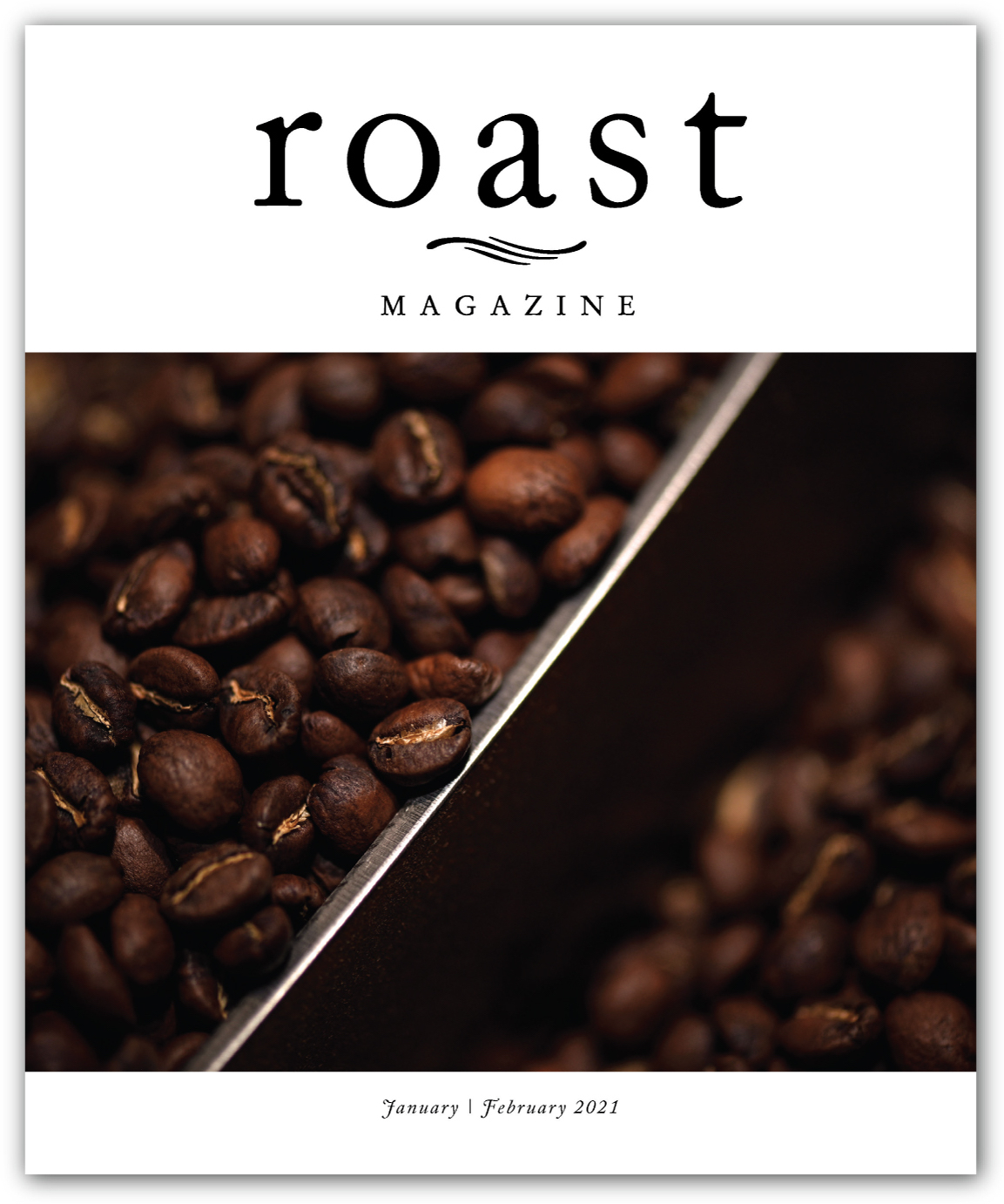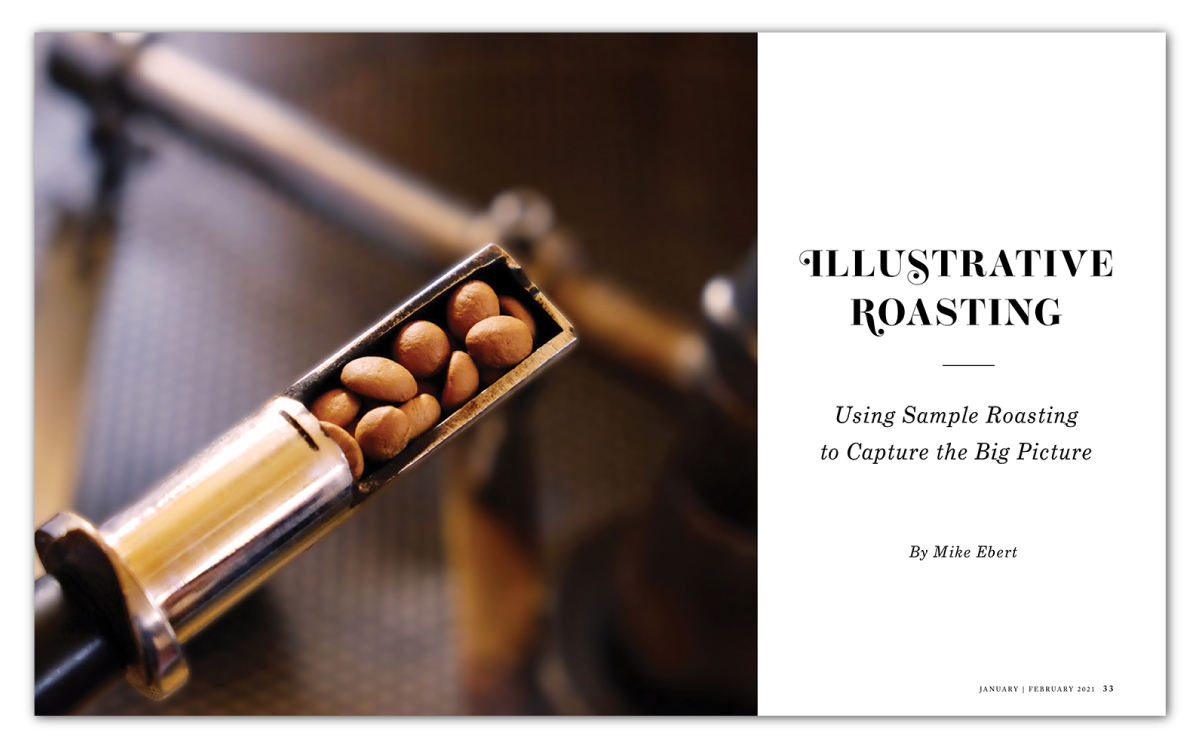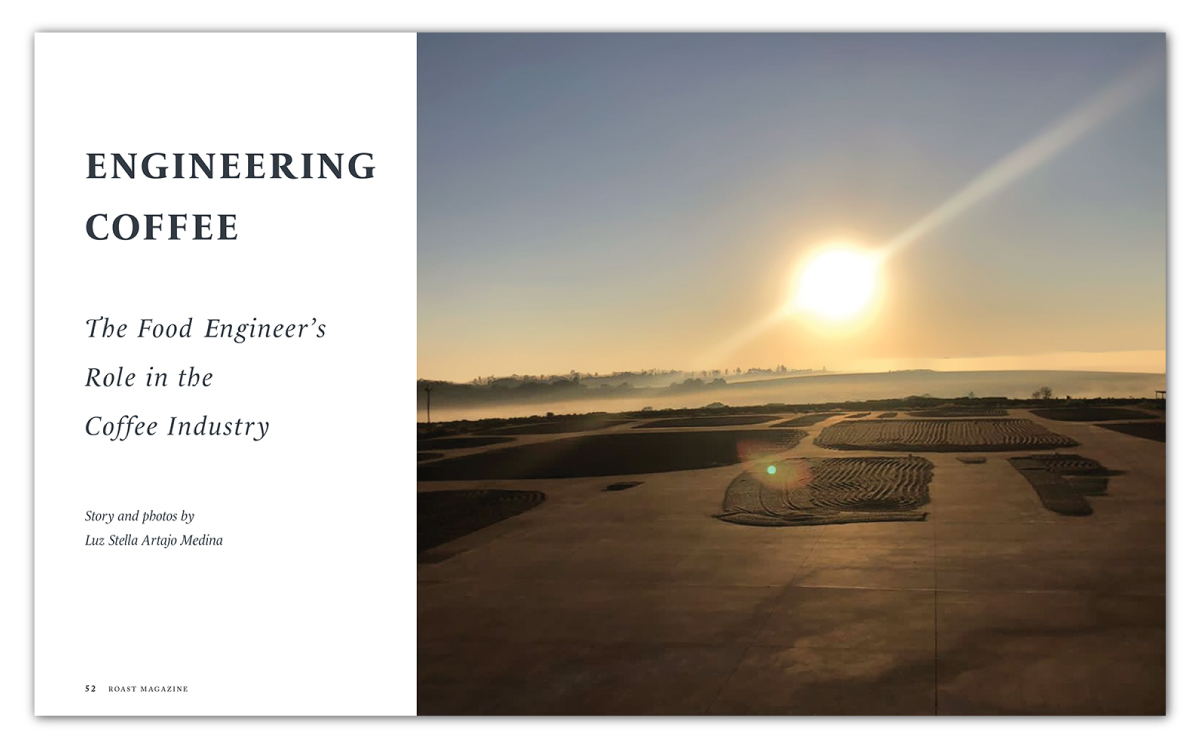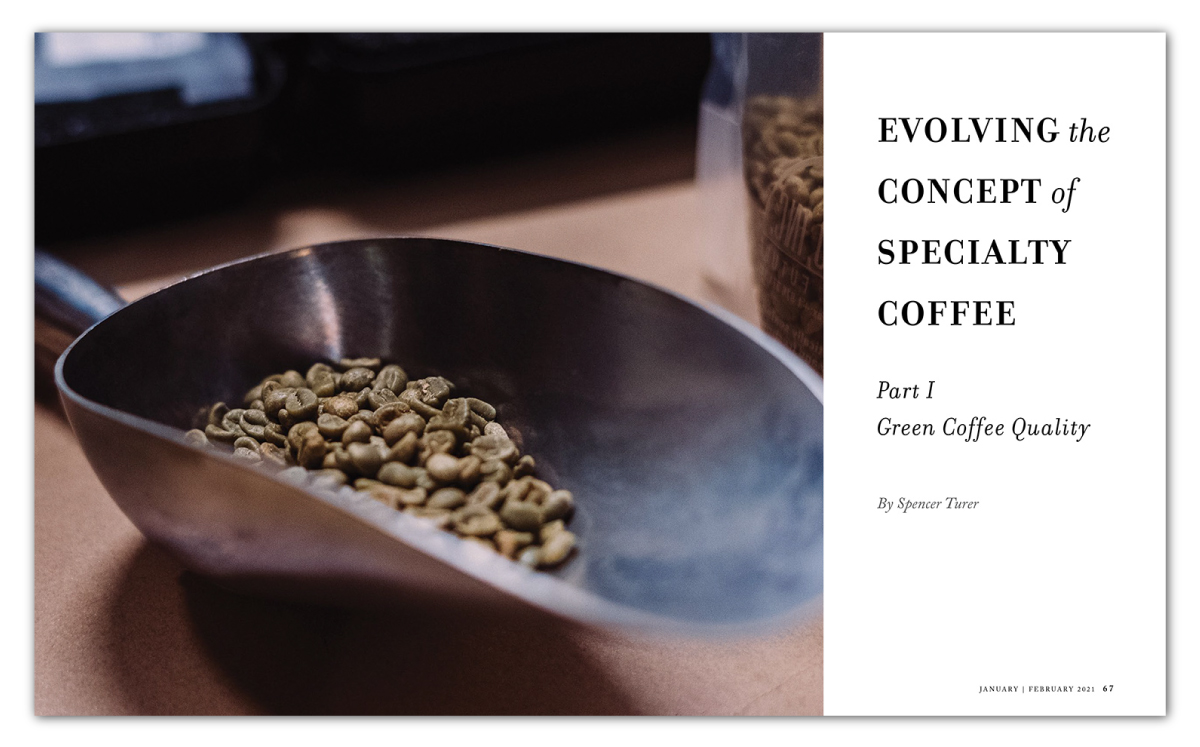 The January/February 2021 issue of Roast is out now, with in-depth articles on how sample roasting can be used to capture the big picture of a particular coffee, the food engineer’s role in the coffee industry, and evolving the concept of specialty coffee.
The January/February 2021 issue of Roast is out now, with in-depth articles on how sample roasting can be used to capture the big picture of a particular coffee, the food engineer’s role in the coffee industry, and evolving the concept of specialty coffee.
Columns cover the identification of a new genetic group in Yemen, post-harvest processing methods and effects on coffee aroma and flavor, and an exploration of the classic washed Central American coffees.
Subscribe to the print edition of Roast to receive upcoming issues, or purchase the print version of the January/February issue. Roast print subscribers also receive complimentary digital access to the issue.
Inside This Issue
In “Illustrative Roasting: Using Sample Roasting to Capture the Big Picture,” Mike Ebert, founder of Firedancer Coffee Consultants, looks at the ways in which sample roasting can be used to assure that a coffee is free from defects, confirm that it matches specific desired sensory attributes, and make purchasing decisions. The article also covers the various types of sample roasting machines that can be utilized for different purposes or objectives.
Putting together a formal sample-roasting program is critical to the success of your coffee company. Do not be fooled into thinking it’s just for larger businesses—establishing solid protocols will give you the confidence needed for purchasing and profile creation.
The next feature, “Engineering Coffee: The Food Engineer’s Role in the Coffee Industry” by Luz Stella Artajo Medina, covers the qualifications and qualities of a food engineer, potential career paths within the coffee industry, and how food engineers can help facilitate understanding in regard to the many challenges that the coffee is facing in current times, and how working in this role can support the industry.
Food engineers working in the coffee sector have a great opportunity to champion innovation and focus on more sustainable processes. A good example is the thinking and innovation that led to the use and design of more ecological equipment to mitigate large amounts of solid and liquid waste from coffee processing.
The first installment of a two-part series by Spencer Turer, vice president of Coffee Enterprises, “Evolving the Concept of Specialty Coffee — Part I: Green Coffee Quality,” explores the terminology used to describe coffee quality, focusing on green coffee quality specifically. It looks at how quality determinations have been made historically, and how coffee quality is evaluated and identified presently by various countries and organizations.
From a technical perspective, specialty coffee has come to denote a specific grade of coffee that meets certain criteria … In the retail or roasting context, the term has taken on another meaning. These criteria are open to interpretation and lacking a widely accepted definition, and thus can be unclear to consumers and industry professionals alike.
Features
Illustrative Roasting
Using Sample Roasting to Capture the Big Picture
Engineering Coffee
The Food Engineer’s Role in the Coffee Industry
Evolving the Concept of Specialty Coffee
Part I: Green Coffee Quality
Columns
News Item
The Discovery (or Rediscovery) of the
Yemenia Genetic Group
First Crack
New Product Spotlight
Technically Speaking
Post-Harvest Processing Methods and Effects on Coffee Aroma and Flavor
Roaster Roundup
People Profiles
Coffee Review
The Fate of a Classic: Washed Central America Coffees
Fresh Press
Advertiser Index
Parting Shot









Comment